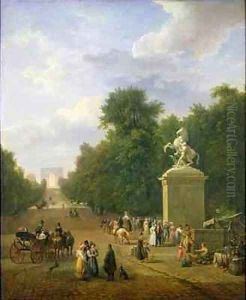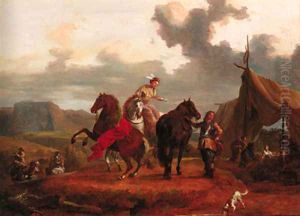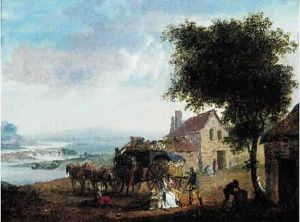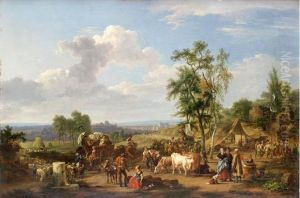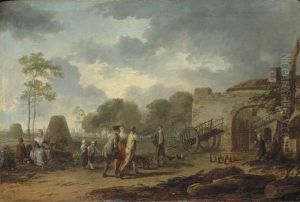Eustache Francois Duval Paintings
Eustache Francois Duval was a French artist born in 1774, during a period of significant political and social upheaval in France, leading up to the French Revolution. Despite the tumultuous times, Duval managed to carve out a career in the arts, contributing to the rich tapestry of French cultural heritage through his work. His life spanned the Revolution, the Napoleonic era, and into the reign of Louis-Philippe, King of the French, witnessing and perhaps being influenced by the profound changes these events brought to French society and its artistic expressions.
Duval's artistic journey began in an era when the neoclassical style dominated French art, inspired by the ideals of the Enlightenment and a renewed interest in the classical antiquity. This period emphasized clarity, order, and balance, principles that were reflected in Duval's work. However, as his career progressed, so too did the artistic movements of his time, transitioning into Romanticism. This new movement, which gained momentum in the early 19th century, focused on emotion, individualism, and the sublime, contrasting with the rationality of Neoclassicism. Duval's ability to adapt to this shift demonstrated his versatility as an artist.
Not much is detailed about Duval's personal life or the specifics of his oeuvre, which suggests that his fame may not have reached the heights of contemporaries such as Jacques-Louis David or Jean-Auguste-Dominique Ingres. Nonetheless, Duval contributed to the French art scene through his commitment to the evolving styles of his time. His works, likely encompassing a range of subjects popular in both Neoclassical and Romantic art, including historical themes, portraits, and possibly landscapes, would have reflected the changing tastes and ideologies of his era.
Eustache Francois Duval passed away in 1852, leaving behind a legacy that, while perhaps not as well-documented as that of his more famous peers, represents the journey of French art through one of its most dynamic and transformative periods. His life and work serve as a testament to the lesser-known artists who played a role in the development of French art history, contributing to its diversity and richness.
